Trump lawyer William Owen Scharf picked for ‘crucial’ White House assistant role
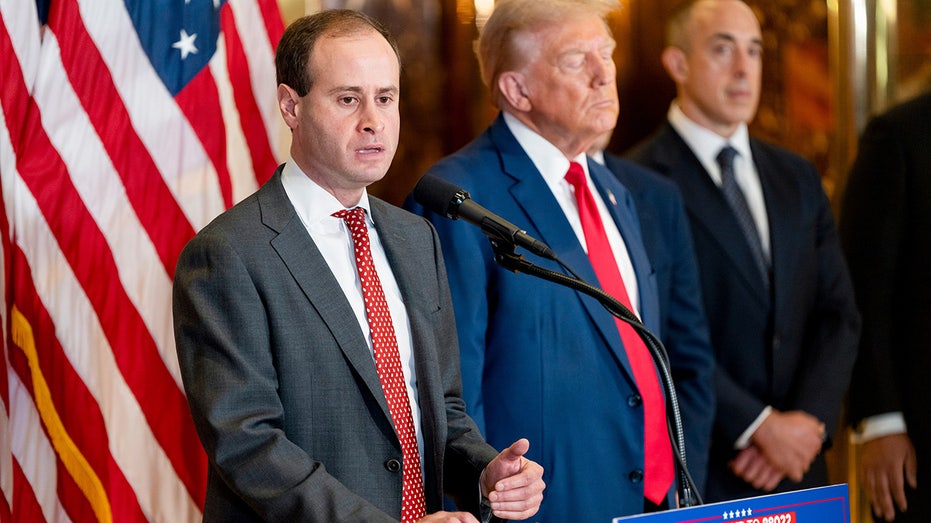
President-elect Trump announced that William Owen Scharf, one of his lawyers, will serve as assistant to the president and staff secretary in the upcoming administration. “I am pleased to announce that William Owen Scharf will serve as Assistant to the President and White House Staff Secretary,” Trump’s statement read. “Will is a highly skilled attorney who will be a crucial part of my White House team.” The Republican leader added that Scharf, a former federal prosecutor, “has played a key role in defeating the Election Interference and Lawfare waged against me, including by winning the Historic Immunity Decision in the Supreme Court.” “Will is going to make us proud as we Make America Great Again,” Trump added. GOV KRISTI NOEM REFLECTS ON TRUMP WIN, SAYS DEMOCRATS ‘TRY TO PUT WOMEN IN A BOX’ Scharf, who received an undergraduate degree from Princeton University and a law degree from Harvard University, has clerked for two federal appeals court judges. The former prosecutor was also employed by CRC Advisors, a conservative public relations firm, and has also worked for Missouri Gov. Eric Greitens. Scharf also worked as an assistant U.S. Attorney in St. Louis. HERE ARE THE MOST TALKED-ABOUT CANDIDATES FOR TOP POSTS IN TRUMP’S ADMINISTRATION The lawyer recently ran for Missouri attorney general, but lost in the Republican primary to incumbent Andrew Bailey. Bailey won against Democrat Elad Gross earlier in November. Trump posted about Scharf’s appointment shortly before he announced his pick for secretary of energy, Chris Wright, on Saturday night. Wright, the CEO of Liberty Energy, “was one of the pioneers who helped launch the American Shale Revolution that fueled American Energy Independence, and transformed the Global Energy Markets and Geopolitics,” Trump wrote. Fox News Digital’s Brooke Singman contributed to this report.
Trump taps Liberty Energy CEO Chris Wright for Department of Energy: ‘Leading technologist and entrepreneur’
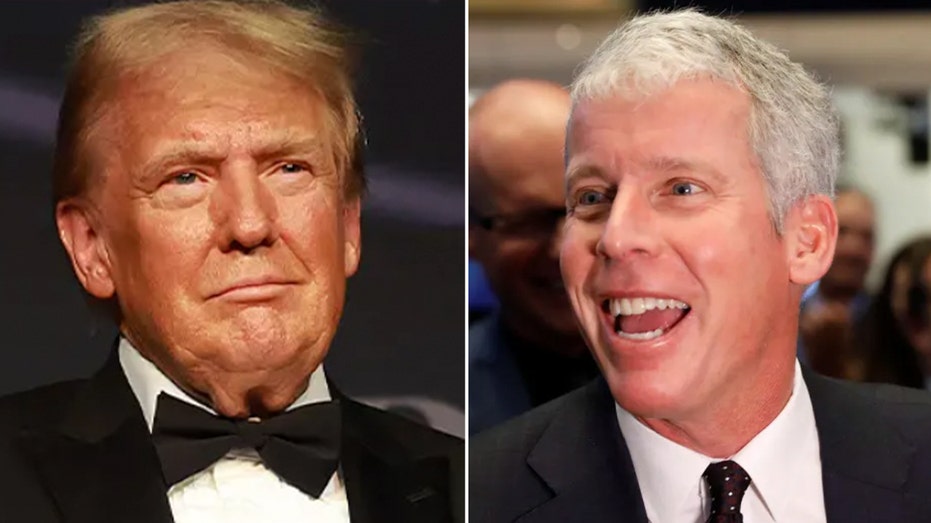
President-elect Donald Trump announced that Chris Wright, the CEO and founder of Liberty Energy, will lead the Department of Energy in his new administration. “I am thrilled to announce that Chris Wright will be joining my Administration as both United States Secretary of Energy, and Member of the newly formed Council of National Energy,” Trump said in a statement released Saturday. The newly-elected president wrote that Wright “has been a leading technologist and entrepreneur in Energy.” “He has worked in Nuclear, Solar, Geothermal, and Oil and Gas,” Trump’s statement read. “Most significantly, Chris was one of the pioneers who helped launch the American Shale Revolution that fueled American Energy Independence, and transformed the Global Energy Markets and Geopolitics.” The key Cabinet position announcement comes after Trump made independent energy and bolstering oil and gas production a cornerstone of his campaign. While on the campaign trail, Trump pledged to expand fracking and lift a pause on liquefied natural gas exports, which marks a sharp contrast with his predecessor. LEAVE THE OIL TO ME: TRUMP VOWS TO UNLEASH US ENERGY, UNDO KEY BIDEN RULES IN 2ND TERM “They annihilated your steel mills, decimated your coal jobs, assaulted your oil and gas jobs and sold off your manufacturing jobs to China and other foreign nations all over the world,” Trump said of the Biden administration during a campaign event in Pennsylvania last month. BIDEN ADMIN TOUTS JOB WELL DONE REPLENISHING OIL RESERVES DESPITE DEPLETING THEM BY HALF OVER LAST 4 YEARS The president-elect has also vowed to use his second White House term to re-exit the Paris climate accord, undo strict emissions standards for vehicles and power plants, and bolster production of U.S. oil and gas, including through fracking. Trump’s nominees and administration picks during his second administration are being publicly announced at a much faster pace than during his first administration in 2016, which the transition team attributed to Trump’s commitment to putting “America first.” EPA’S NEW RULE TO CHARGE OIL AND GAS COMPANIES FOR EMISSIONS COULD FACE A TRUMP RECKONING “The American people re-elected President Trump by a resounding margin, giving him a mandate to implement the promises he made on the campaign trail — and his Cabinet picks reflect his priority to put America First. President Trump will continue to appoint highly qualified men and women who have the talent, experience and necessary skill sets to Make America Great Again,” Trump-Vance transition spokeswoman Karoline Leavitt told Fox News Digital when asked about Trump’s speedy roll-out of Cabinet picks. Under his first administration, Trump tapped former Texas Gov. Rick Perry for the position, before Dan Brouillette took the position over in 2019. Trump did not announce his choice of Perry until Dec. 14, 2016, putting him ahead of his first term’s nomination process. On the energy front, Trump also reportedly plans to install an “energy czar” to scale back energy and climate regulations implemented under the Biden administration, and also already named former New York Rep. Lee Zeldin as his pick to lead the Environmental Protection Agency. Fox News Digital’s Breanne Deppisch and Alec Schemmel contributed to this report.
Media bias, inaccuracy and the violence in Amsterdam

What one night of violence revealed about the western media’s failings on Israel and Palestine. In the wake of an ugly eruption of violence on the streets of Amsterdam, the media coverage of the story has been put under the microscope with editors scrambling to revise headlines, rework narratives, and reframe video content. Contributors: Dana Mills – Writer, Local Call and +972 MagazineMarc Owen Jones – Associate professor, Northwestern University QatarJames North – Editor-at-large, MondoweissSamira Mohyeddin – Founder, On The Line Media On our radar Incoming president Donald Trump has appointed Elon Musk – one of his most vocal supporters – to co-lead the brand new Department of Government Efficiency. Meenakshi Ravi looks at Musk’s new role and how he could use his influence to get favourable government treatment for his companies. The Headline Fixer Throughout Israel’s genocidal war on Gaza, critics have been tearing apart the media coverage – especially by news outlets in the United States. Feature blurb: Israel’s genocidal war on Gaza has shone an often-unflattering spotlight on media coverage by mainstream US news outlets. Such failings jump out at us because they often come in the form of headlines. Historian Assal Rad explains the mission she has undertaken to “fix” misleading headlines. Featuring: Assal Rad – Author of State of Resistance: Politics, Culture and Identity in Modern Iran Adblock test (Why?)
G7 backs Ukraine as Zelenskyy says he wants to end war next year

Ukraine president says Kyiv will do everything possible so the war with Russia ends in 2025 ‘through diplomatic means’. Leaders of the G7 alliance have reaffirmed support for Ukraine “for as long as it takes” as President Volodymyr Zelenskyy said he wants to end the war through talks next year. The Ukrainian president said in a radio interview aired on Saturday that his side will do everything possible so that the war with Russia ends in 2025 “through diplomatic means”. The previous day he said that the re-election of Donald Trump as United States president means that the war will likely end “sooner” than it otherwise would have. Trump has said he wants to end the war immediately and Vice President-elect JD Vance has suggested that a Trump administration could favour letting Russia keep land it has seized on the battlefield, but Zelenskyy said he “didn’t hear anything that goes against our position” when he spoke with Trump earlier this month. For his part, Russian President Vladimir Putin has said Moscow will only accept an agreement if it sees Kyiv surrender the Ukrainian territory it has lost during the war. The Russian leader told German Chancellor Olaf Scholz on Friday during their first direct conversation in almost two years that an agreement would also need to address the “root causes” of the conflict, which include NATO expansion. As all sides prepare for the impacts of a Trump presidency on the war, the G7 affirmed its “support of Kyiv as the thousandth day of Russia’s war of aggression against Ukraine approaches”. “Russia remains the sole obstacle to just and lasting peace. The G7 confirms its commitment to imposing severe costs on Russia through sanctions, export controls and other effective measures,” the leaders of the group said in a statement. The intergovernmental group consists of the US, the United Kingdom, France, Germany, Italy, Japan, and Canada. Italy currently holds the rotating presidency until the end of the year. In advance of Trump’s inauguration in January, Ukraine has been scrambling to secure more Western weapons and funding as the president-elect has heavily criticised US spending on aiding Ukraine. The outgoing administration of President Joe Biden has pledged to strengthen its support for Kyiv in its remaining time in power. Russian advances Zelenskyy also conceded that the situation in eastern Ukraine was difficult and Russian forces were making advances. Moscow’s forces are bearing down on Kurakhove, which has a thermal power plant and is only seven kilometres (four miles) from Pokrovsk, a large town that, for much of the war, has been one of Ukraine’s logistical linchpins. On the battlefields of eastern Ukraine, Russia is now advancing at the fastest rate since the war’s earliest days in 2022. North Korea has sent thousands of soldiers to the Russian region of Kursk to help Moscow fight off a Ukrainian incursion that started in August. Russia’s Ministry of Defence said on Saturday that air defences downed 15 drones in Kursk, along with multiple other attacking aircraft in several other regions. Adblock test (Why?)
Israeli air raid on Gaza City school-turned-shelter kills 10 people

The strike took place at a UN-run school in Gaza City’s Shati refugee camp. An Israeli strike on a school where displaced Palestinians were sheltering in Gaza City’s Shati refugee camp has killed 10 people and wounded at least 20 others, Palestinian medics said. Rescue operations were under way at the UN-run Abu Assi school in northern Gaza on Saturday, health officials said. Reporting from Deir el-Balah, Al Jazeera’s Hind Khoudary said that according to locals and witnesses, most of the people sheltering in the school were displaced from other parts of Gaza. “Let me remind you there is only one hospital functioning in the city … and we know the health situation in hospitals in Gaza has been horrible … so it is difficult to help the injured,” she said. Palestinian health officials said at least 30 people were killed by Israeli military strikes across the enclave on Saturday. The northern Gaza Strip, in particular, has been under siege for more than 40 days. “Israeli soldiers have surrounded and imposed a strict blockade on Palestinians in Beit Lahiya, Jabalia and Beit Hanoon, where Palestinians are unable to evacuate their besieged homes,” Khoudary said. “We have received many appeals from people in Beit Lahiya who say they’re stuck and need rescuing. They have no food, water or medical aid,” she noted. “Other than air strikes and continuing artillery shelling, the military has extensively deployed quadcopters that Israeli forces use to fire live ammunition at Palestinians and kill them in different areas across the Gaza Strip,” Khoudary added. Later on Saturday, the Israeli military reported that two rockets fired at Israel from the northern Gaza Strip were intercepted. The launches show the ability of Palestinian fighters to fire rockets into Israel despite more than 13 months of an aerial and ground offensive that turned vast land in the enclave into wasteland and displaced most of the 2.3 million population. Israel’s genocide in Gaza has killed at least 43,799 Palestinians and wounded 103,601 since October 7, 2023. An estimated 1,139 people were killed in Israel during the Hamas-led attacks that day, and more than 200 were taken captive. Adblock test (Why?)
Schumer now pleads for bi-partisanship having promised to railroad Democrat agenda through
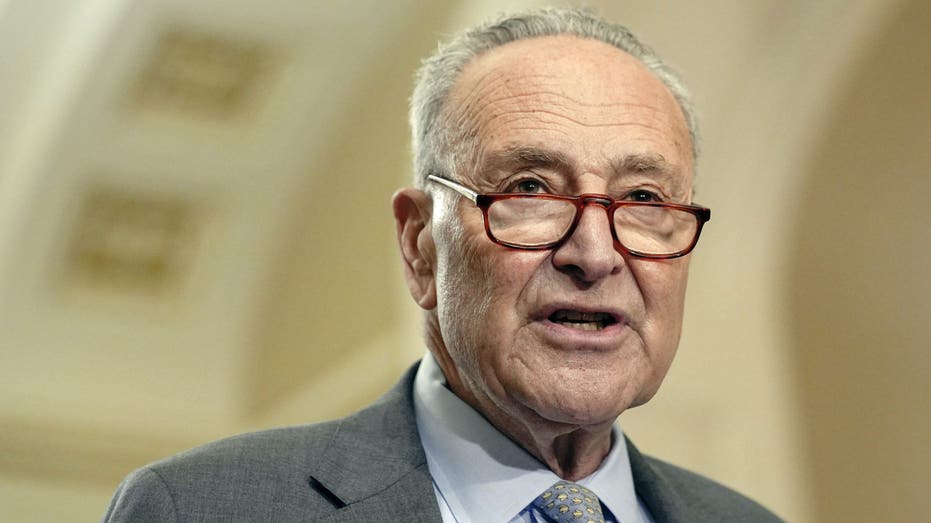
With Republicans sweeping to a red trifecta in last week’s elections, stunningly capturing the White House and majorities in the House and Senate, Sen. Majority Leader Chuck Schumer is cutting a different tone, compared to his pre-election hype where he posited a Democrat win in the Senate and then potentially getting rid of the filibuster, among other radical proposals. Ending the filibuster rule – which requires 60 votes to pass bills – would have made it easier for Democrats to supercharge their agenda and essentially railroad any Republican opposition. Schumer and the Democrats tried to kill the filibuster in 2022 when they had 50 votes – the vice president could have broken the tie – but Senators Joe Manchin and Kyrsten Sinema refused to toe the Democratic party line. They eventually became Independents. FILIBUSTER: WHAT TO KNOW ABOUT THE POLITICAL DELAY TACTIC With Manchin and Sinema leaving the Senate, Schumer was confident of having at least 50 Senate seats after this year’s election with a then-potential Vice President Walz breaking the tie on a filibuster vote. “We got it up to 48, but, of course, Sinema and Manchin voted no; that’s why we couldn’t change the rules. Well, they’re both gone,” Schumer told reporters on the Tuesday during the week of the Democratic convention, according to NBC News. “Ruben Gallego is for it, and we have 51. So, even losing Manchin, we still have 50.” The result would have essentially meant one-party rule in the Senate, with Schumer also toying with expanding voting rights nationwide by passing the Freedom to Vote Act and the John Lewis Voting Rights Advancement Act. He also discussed a potential rule change to codify abortion rights in federal law, a party priority after Roe v. Wade was overturned, which would have faced staunch Republican opposition and lacking a path to 60 Senate votes. Schumer also posited reforming the Supreme Court by slapping 18-year term limits on justices and touted reversing the Supreme Court’s presidential immunity ruling, which determined that presidents are immune from prosecution for some “official acts.” He has previously announced his intention to move legislation that would expand the Supreme Court from nine to 13 members. But this week, he went to the floor of the Senate to tell Republicans to essentially go easy on their legislative colleagues on the other side of the aisle, since Republicans will have a 53-to-47 majority. WHAT TRUMP’S REPUBLICAN TRIFECTA IN HIS FIRST ADMINISTRATION ACCOMPLISHED, AND WHERE THEY FAILED: FLASHBACK “To my Republican colleagues, I offer a word of caution in good faith,” Schumer said. “Take care not to misread the will of the people, and do not abandon the need for bipartisanship. After winning an election, the temptation may be to go to the extreme. We’ve seen that happen over the decades, and it has consistently backfired on the party in power.” “So, instead of going to the extremes, I remind my colleagues that this body is most effective when it’s bipartisan. If we want the next four years in the Senate to be as productive as the last four, the only way that will happen is through bipartisan cooperation.” Schumer’s about face wasn’t lost on Byron York, chief political correspondent for the Washington Examiner and a Fox News contributor. “The short version of that is: Please don’t do to us what we were going to do to you,” York writes in the Washington Examiner. “Schumer is obviously concerned that Republicans might embrace a scheme to eliminate the filibuster and pass all sorts of consequential legislation with no Democratic input at all. That wouldn’t be bipartisan!” “Fortunately for Schumer, Republicans have been more principled than Democrats when it comes to the legislative filibuster, and to the filibuster in general. Republicans realize that even though they will have the majority for the next two years, they might be back in the minority at any time after that. So Schumer will not get it good and hard the way he planned to give it to Republicans.” York writes that Schumer’s “brand of hypocrisy is particularly egregious” since he was advocating changing Senate rules on a partisan basis to eliminate the minority party’s ability to demand a higher standard of approval for controversial legislation, as opposed to advocating to get a particular bill across the line. “He was. And then, when Schumer’s party loses, he instantly turns around and becomes Mr. Bipartisanship. For that, there should be a word that goes beyond mere hypocrisy.” Senate Minority Whip John Thune, R-S.D., will replace Schumer as Majority Leader and is planning to make ushering in President-elect Trump’s immigration agenda the first item on his to-do list when he succeeds. He has not indicated that he intended to vote on the filibuster rule. He said repairing the economy is also near the top of his list. As crucial elements of the Tax Cuts and Jobs Act of 2017 passed by Trump are set to expire in 2025, Thune said Republicans will take action through the budget reconciliation process to renew them. The trifecta will make Trump’s agenda easier to pursue without opposition from a Democratic majority. Republicans held a governing trifecta from 2017 to 2019. The GOP achieved much of their agenda, including sweeping tax reform and confirming justices to achieve a conservative majority in the Supreme Court. But Thune said he would protect the filibuster rule, even if it stands in the way of the Trump agenda it hopes to advance. Fox News’s Jamie Joseph, Julia Johnson and Tyler Olson contributed to this report.
North Carolina Democrat floats ‘shadow cabinet’ to take on Trump administration
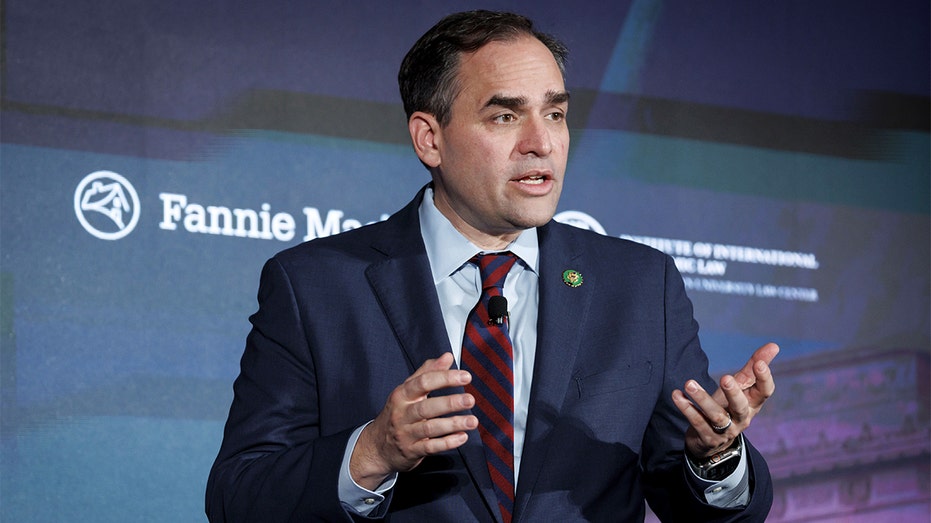
With President-elect Trump headed back to the White House and Republicans in the majority in Congress, Democrats have few options to push back against the GOP agenda. But one enterprising North Carolina lawmaker thinks his minority party should look across the pond to the United Kingdom for the answer to “go toe to toe” with Trump. Rep. WIley Nickels, D-N.C., has proposed that Democrats create a “shadow cabinet” to organize the opposition and challenge each decision by the government. “Across the Atlantic, the British have something we don’t: a team from the opposition that mirrors the government’s cabinet members. They watch the cabinet closely, publicly challenging, scrutinizing and offering new ideas. It’s another form of checks and balances — a quiet guardrail that keeps power accountable,” Wiley argues in an op-ed for the Washington Post. His proposal is to appoint 26 Democratic leaders in Congress to mirror Trump’s Cabinet-level officials and challenge each initiative of the incoming administration. Sen.-elect Adam Schiff, D-Calif., for instance, could be a shadow attorney general who would call out Trump’s efforts to replace career Justice Department attorneys with those loyal to the president. Or Rep. Gregory W. Meeks, D-N.Y., might be a shadow Secretary of State who would loudly oppose potential action by the Trump administration that would decrease support for Ukraine in its war with Russia. ‘ALL THE OPTIONS’ ARE ON THE TABLE TO GET TRUMP’S CABINET PICKS THROUGH CONFIRMATION, SAYS SEN. JOHN THUNE “We have to step up our game. We have to go toe to toe with Trump. And it’s not just about saying, you know what, what we’re against. It’s about saying what we’re for and putting our best messengers out there,” Nickel told CNN’s Laura Coates in a recent interview. In the U.K., a shadow cabinet is a team of opposition leaders that reflect the ruling party’s cabinet members. The shadow cabinet has a counterpart for every minister in the ruling coalition’s government. It’s a system Nickel argues has worked for a century. “They watch the Cabinet closely, publicly challenging, scrutinizing and offering new ideas,” Nickel wrote in his op-ed. “It’s democracy’s insurance policy. And it strengthens the government, too: There is no room for lazy ideas when rivals stand ready.” TRUMP’S PICKS SO FAR: HERE’S WHO WILL BE ADVISING THE NEW PRESIDENT There are key differences between the U.S. and U.K. governments that might complicate this idea. The most obvious being that the U.K. uses a parliamentary system, where multiple parties form coalition governments as opposed to the dual party system Americans have. The U.K. prime minister is the head of government and leads the Cabinet, which exercises the executive power. The American founders intentionally created a different system. The U.S. Constitution invests the legislative power in Congress and the authority to enforce laws in the Executive Branch, which is led by the president. The president’s cabinet officials each head different executive agencies, which are created by Congress but not administered by lawmakers. WHAT TRUMP’S REPUBLICAN TRIFECTA IN HIS FIRST ADMINISTRATION ACCOMPLISHED, AND WHERE THEY FAILED: FLASHBACK Members of the cabinet are nominated by the president and confirmed with the “advice and consent” of the Senate. Nickels’ proposed shadow cabinet officials would not be subject to similar checks on power. In addition, in the absence of a definite constitutional authority, it is unclear what powers a “shadow cabinet” might exercise, or what purpose it would serve other than to voice objections to Trump’s policies – which every member of Congress can already do during legislative debate. In an interview with LiveNow from FOX, Nickel clarified that his idea is a “communications push.” “It’s about putting out our positive message to counter what we’re seeing from Trump. And if Trump or his Cabinet secretaries step out of line we’ve got somebody ready to go and answer, and be accountable to the American people on things we care about,” he explained. “This is about putting a point person for advocacy groups, for the public, a lead messenger … we need to organize our opposition,” Nickel said. “We can do our own American version of a [shadow cabinet] that will help Democrats do the thing we didn’t do, which is get out our positive message and talk about the things that folks are rightly concerned about.”
Republicans appears likely to flip majority-Latino California state assembly seat
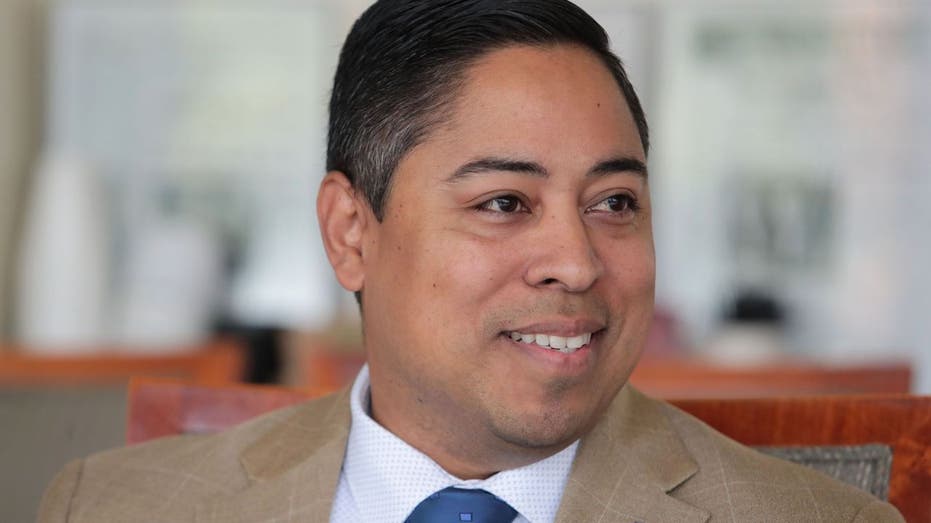
Republicans in a majority-Latino district in California that includes Indio and Coachella are on course to flip a Democratic state Assembly seat red. Jeff Gonzalez, an Iraq and Afghanistan war veteran, is set to beat out Democrat Joey Acuña, a school board member, for the 36th Assembly District. Gonzalez is ahead by an insurmountable 4,362 votes, or 3.1%, as of Friday, per official count numbers. If Gonzalez gets over the line, it will be the first time since 1992 that Republicans in California have picked up a seat in the state legislature during a presidential cycle, according to California state Assembly member Bill Essayli. Republican Ken Calvert wins re-election to US House in California’s 41st Congressional District If elected, Gonzalez will replace longtime Democratic legislator Eduardo Garcia as the next state assembly member in a sprawling district. Garcia, from Coachella, decided not to seek re-election this year and instead endorsed Acuña, the Coachella Valley Unified School District board president, per the Desert Sun. The soon-to-be stunning seat win is underlined by the fact that Democrats make up about 42.3% of the 245,500 people registered to vote in the district, while Republicans account for 28.7%. Voters with no party affiliation were 21.6% of the total, according to the Desert Sun. In the March primary, Gonzalez received about 21,000 votes compared to about 12,000 for Acuña. However, Democratic candidates overall earned about 4,500 more votes than Republicans. California, a deep blue state, was easily won by Vice President Harris, who is currently leading President-elect Trump by 58.8% to 38% with 92.85% of the votes counted. Gonzalez is a 21-year veteran of the Marine Corps who also served on embassy protection missions in Honduras and the Czech Republic, working closely with former Secretary of State Madeleine Albright, according to his campaign website. GOP REP. CALVERT WINS ELECTION IN COMPETITIVE CALIFORNIA HOUSE SEAT He is also a pastor and the owner of three small businesses, per his website. He is married with four sons, one of whom is physically and mentally challenged and lives with he and his wife for caregiver support. Gonzalez ran on a platform of cutting red tape, lowering taxes and fees on groceries and gas and “reviving the California Dream.” He also wants to address inflation by passing “the largest middle-class tax cut in California history.” Gonzalez is also vowing to improve education, saying he is concerned about falling test scores and graduation rates. He wants to hire more teachers and more school security to create a safer learning environment as well as promote bipartisanship by supporting good ideas from both parties. Acuña ran on tackling affordability, housing and public safety. “I want to make sure the kids who grow up in our district have access to good-paying jobs, safe neighborhoods, world-class schools, and clean air and water,” he states on his website. Acuña is serving his fifth term on the Coachella Valley Unified School District Board of Trustees. In this role, he said he has worked to improve graduation rates, enhance after-school programs, and expand the district’s college and career pathway programs, according to his website. He works professionally as development manager for health clinics and a grant writer for a local tribe.
Bengaluru: Father slams 14-year-old son against wall, kills him due to…

The father of the boy assaulted him with a cricket bat and held him by neck and banged his head on the wall several times and only after he lost complete consciousness
Govinda deals with health scare, leaves election campaign due to…

According to reports, Govinda’s condition worsened, leading him to return to Mumbai without completing the event
